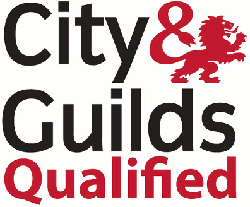Legionella services in Birmingham
Legionella is the bacteria, which when transmitted to humans through the inhalation of contaminated aerosols, causes Legionnaires Disease, a potentially fatal form of pneumonia (average fatality rate of 11%). Within the home, it has been found to colonise in or near bodies of sitting water, with bacterial dispersal occurring in the form of spray from showerheads, taps and dishwasher steam.
Legionella is the bacteria, which when transmitted to humans through the inhalation of contaminated aerosols, causes Legionnaires Disease, a potentially fatal form of pneumonia (average fatality rate of 11%). Within the home, it has been found to colonise in or near bodies of sitting water, with bacterial dispersal occurring in the form of spray from showerheads, taps and dishwasher steam.
What is Legionella disease?
 Legionnaires’ disease is potentially a fatal form of pneumonia, which is contracted through the inhalation of contaminated water vapour. The disease is caused by Legionella bacterium, which is found in the natural environment and grows profusely in hot and cold water systems such as unused pipework, taps, showerheads and water tanks within a property.
Legionnaires’ disease is potentially a fatal form of pneumonia, which is contracted through the inhalation of contaminated water vapour. The disease is caused by Legionella bacterium, which is found in the natural environment and grows profusely in hot and cold water systems such as unused pipework, taps, showerheads and water tanks within a property.
Legionella bacterium found in a residential setting can spread under the right conditions and then water vapour containing Legionella bacterium can be inhaled from a variety of sources including home taps, baths and showers. Everyone is susceptible to contracting illness due to water Legionella contaminated water within a property.
Tenants classed as being at higher risk of contracting illness through Legionella bacterium include tenants that are smokers, tenants that are heavy drinkers, tenants with lung disease, tenants with an impaired immune system, tenants with kidney disease or tenants aged over 45.
Legionnaires’ disease contracted through the inhalation of Legionella bacteria can cause long-term health problems and reduced quality of life, being fatal in a percentage of cases and that’s why it is necessary for landlords and letting agents that manage properties on behalf of their landlords to complete Legionella risk assessments to ensure they meet their duty of care towards tenants renting properties through them.
Landlords’ Legionella responsibilities
Recent research has demonstrated that Legionella can multiply in domestic systems smaller than the 300-litre limit previously stipulated. As such, landlords and letting agent managing premises on behalf of a landlord with a water system are now legally required under the Code of Practice (ACOP) and guidance regarding Legionnaires’ disease to put in measures intended to control the risk of potential exposure to Legionella bacteria.
As a landlord or letting agent, you have a legal responsibility to identify, assess and implement measures to control any Legionella risk in your tenant’s flat, apartment or house. A proper Legionella risk assessment will ensure risks to the tenant are minimal.
How to counteract the risk of Legionella
In order to comply with this new legislation, those responsible for the property must ensure that a Legionella risk assessment is conducted to identify and assess potential sources of exposure and a course of action implemented to prevent or control any risk.
A Legionella risk assessment should be reviewed at regular intervals, especially if any factors change such as alterations to the plumbing, new water fittings, long periods of non-use (when properties are empty waiting to be re-let) and changes of the tenants living in the accommodation.
What will a Legionella risk assessment involve?
The main purpose of carrying out a risk assessment is to identify and assess any risks within the property’s water system. As such, the assessor needs to be competent in understanding water systems and drawing a conclusion as to whether a system is likely to create a risk from exposure to Legionella.
At Skribes, our Legionella risk assessment for Birmingham landlords and Birmingham letting agents includes a full inspection of any potential risk areas within the property and includes a report of recommendations to avoid any potential risk of growth of Legionella bacterium in the property water system.
To prove compliance with the law it is advisable that landlords and letting agents keep a written record of the risk assessments undertaken. The reports provide evidence that, as a landlord or letting agent, you are aware of the risks and have done all that you can to prevent Legionella affecting tenants.
What happens if you don’t carry out a risk assessment?
Failure to carry out and maintain Legionella risk assessments can result in serious consequences. The law is clear it is a legal obligation for landlords to fulfil and should a tenant become exposed to Legionnaires’ disease, heavy fines are commonplace. If the disease leads to a fatality, imprisonment can be imposed. Even if there is exposure without any tenants actually becoming ill, landlords can still be prosecuted for not fulfilling their legal obligations.
It simply isn’t worth the risk. Landlords and letting agents should seek support from a trained Legionella assessor before it’s too late.
How can we help?
If you are a landlord or letting agent managing a property on behalf of a landlord or own a property and rent out a room within your property, then it is your responsibility to ensure that a Legionella risk assessment is carried out. Our team have been trained to carry out Legionella risk assessments, which help landlords in Birmingham and letting agents in Birmingham meet legal obligations and ensure the safety of tenants. Skribes is also a City& Guilds qualified Legionella assessor.

It is always a pleasant surprise to work with a team who do what they say they will, when they say they will. When FleetMilne enlisted Skribes’ help in carrying out our legionella risk assessments, they went above and beyond the call of duty to deliver on everything we asked of them well in advance of the deadline we had set.
Their reports were clear and incisive and they were fantastic in working with us to devise a reporting system which our team could easily interpret.
Overall, we have been nothing but thoroughly impressed with their efforts.
What is Legionella disease?
Legionnaires’ disease is potentially a fatal form of pneumonia, which is contracted through the inhalation of contaminated water vapour. The disease is caused by Legionella bacterium, which is found in the natural environment and grows profusely in hot and cold water systems such as unused pipework, taps, showerheads and water tanks within a property. Legionella bacterium found in a residential setting can spread under the right conditions and then water vapour containing Legionella bacterium can be inhaled from a variety of sources including home taps, baths and showers. Everyone is susceptible to contracting illness due to water legionella contaminated water within a property.
Tenants classed as being at higher risk of contracting illness through Legionella bacterium include tenants that are smokers, tenants that are heavy drinkers, tenants with lung disease, tenants with an impaired immune system, tenants with kidney disease or tenants aged over 45.
Legionnaires’ disease contracted through the inhalation of Legionella bacteria can cause long-term health problems and reduced quality of life, being fatal in a percentage of cases and that’s why it is necessary for landlords and letting agents that manage properties on behalf of their landlords to complete Legionella risk assessments to ensure they meet their duty of care towards tenants renting properties through them.
Landlords’ Legionella responsibilities
Recent research has demonstrated that Legionella can multiply in domestic systems smaller than the 300-litre limit previously stipulated. As such, landlords and letting agent managing premises on behalf of a landlord with a water system are now legally required under the Code of Practice (ACOP) and guidance regarding Legionnaires’ disease to put in measures intended to control the risk of potential exposure to Legionella bacteria.
As a landlord or letting agent, you have a legal responsibility to identify, assess and implement measures to control any Legionella risk in your tenant’s flat, apartment or house. A proper Legionella risk assessment will ensure risks to the tenant are minimal.
How to counteract the risk of Legionella
In order to comply with this new legislation, those responsible for the property must ensure that a Legionella risk assessment is conducted to identify and assess potential sources of exposure and a course of action implemented to prevent or control any risk.
A Legionella risk assessment should be reviewed at regular intervals, especially if any factors change such as alterations to the plumbing, new water fittings, long periods of non-use (when properties are empty waiting to be re-let) and changes of the tenants living in the accommodation.
What will a Legionella risk assessment involve?
The main purpose of carrying out a risk assessment is to identify and assess any risks within the property’s water system. As such, the assessor needs to be competent in understanding water systems and drawing a conclusion as to whether a system is likely to create a risk from exposure to Legionella.
At Skribes, our Legionella risk assessment for Birmingham landlords and Birmingham letting agents includes a full inspection of any potential risk areas within the property and includes a report of recommendations to avoid any potential risk of growth of Legionella bacterium in the property water system.
To prove compliance with the law it is advisable that landlords and letting agents keep a written record of the risk assessments undertaken. The reports provide evidence that, as a landlord or letting agent, you are aware of the risks and have done all that you can to prevent Legionella affecting tenants.
What happens if you don’t carry out a risk assessment?
Failure to carry out and maintain Legionella risk assessments can result in serious consequences. The law is clear it is a legal obligation for landlords to fulfil and should a tenant become exposed to Legionnaires’ disease, heavy fines are commonplace. If the disease leads to a fatality, imprisonment can be imposed. Even if there is exposure without any tenants actually becoming ill, landlords can still be prosecuted for not fulfilling their legal obligations.
It simply isn’t worth the risk. Landlords and letting agents should seek support from a trained Legionella assessor before it’s too late.
How can we help?
If you are a landlord or letting agent managing a property on behalf of a landlord or own a property and rent out a room within your property, then it is your responsibility to ensure that a Legionella risk assessment is carried out. Our team have been trained to carry out Legionella risk assessments, which help landlords in Birmingham and letting agents in Birmingham meet legal obligations and ensure the safety of tenants. Skribes is also a City & Guilds qualified Legionella assessor.

It is always a pleasant surprise to work with a team who do what they say they will, when they say they will. When FleetMilne enlisted Skribes’ help in carrying out our legionella risk assessments, they went above and beyond the call of duty to deliver on everything we asked of them well in advance of the deadline we had set.
Their reports were clear and incisive and they were fantastic in working with us to devise a reporting system which our team could easily interpret.
Overall, we have been nothing but thoroughly impressed with their efforts.
